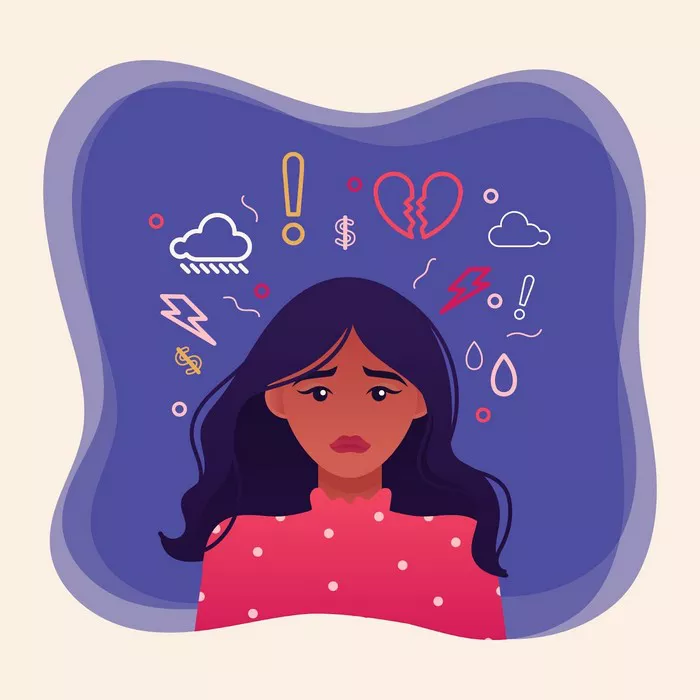Bipolar disorder, formerly known as manic depression, is a mental health condition characterized by extreme mood swings, encompassing episodes of intense highs (mania) and lows (depression). These mood shifts can significantly impact a person’s daily life, relationships, and overall well-being. Understanding what a bipolar person is like involves delving into the intricate facets of this disorder, exploring its symptoms, causes, and the diverse experiences of those affected.
Defining Bipolar Disorder
Overview of Bipolar Spectrum
Bipolar disorder is not a singular experience; it exists along a spectrum with various subtypes. The two primary phases are mania and depression, but the severity and duration of these episodes can vary. The bipolar spectrum includes Bipolar I Disorder, Bipolar II Disorder, Cyclothymic Disorder, and other specified and unspecified bipolar and related disorders.
Mania: The Highs
Manic episodes are characterized by heightened energy levels, increased self-esteem, and impulsivity. Individuals in a manic state may engage in risky behaviors, experience racing thoughts, and exhibit a decreased need for sleep. While some may find manic periods euphoric, others may feel irritable and agitated.
Depression: The Lows
Depressive episodes involve persistent feelings of sadness, hopelessness, and a lack of interest in activities. Fatigue, changes in appetite and sleep patterns, and difficulty concentrating are common during depressive phases. The severity of depressive episodes can range from mild to severe.
Recognizing Bipolar Symptoms
Manic Symptoms
Increased Energy and Activity: A surge in energy levels often leads to heightened productivity and a decreased need for sleep.
Racing Thoughts and Impulsivity: Thoughts may race, and individuals may engage in impulsive, risky behaviors such as excessive spending or substance abuse.
Elevated Self-esteem: An inflated sense of self-esteem and grandiosity are common in manic episodes.
Depressive Symptoms
Persistent Sadness: A pervasive and prolonged feeling of sadness, often accompanied by tearfulness.
Fatigue and Loss of Energy: Individuals may feel constantly tired and lack the energy to perform daily activities.
Changes in Sleep and Appetite: Disturbed sleep patterns and changes in appetite, leading to weight loss or gain.
Mixed Episodes
Some individuals experience mixed episodes, featuring symptoms of both mania and depression simultaneously. This combination intensifies the emotional turmoil and can make diagnosis and treatment challenging.
Causes and Risk Factors
Biological Factors
Genetic Predisposition: A family history of bipolar disorder increases the likelihood of its development.
Neurochemical Imbalances: Dysregulation of neurotransmitters, such as serotonin and dopamine, plays a role in bipolar disorder.
Environmental Factors
Trauma and Stress: Childhood trauma or significant life stressors may contribute to the onset of bipolar disorder.
Substance Abuse: Drug or alcohol abuse can trigger or exacerbate bipolar symptoms.
Neurobiological Factors
Brain Structure and Function: Structural and functional abnormalities in certain brain regions are associated with bipolar disorder.
Circadian Rhythm Disruptions: Irregularities in the body’s internal clock can impact mood regulation.
Diagnosis and Treatment
Diagnostic Process
Diagnosing bipolar disorder involves a thorough assessment of symptoms, medical history, and family history. Mental health professionals may use standardized tools and criteria outlined in the Diagnostic and Statistical Manual of Mental Disorders (DSM-5) to make an accurate diagnosis.
Treatment Approaches
Medication: Mood stabilizers, antipsychotics, and antidepressants are commonly prescribed to manage symptoms.
Psychotherapy: Cognitive-behavioral therapy (CBT), psychoeducation, and interpersonal therapy are effective in managing bipolar symptoms.
Lifestyle Modifications: Maintaining a stable routine, regular exercise, and adequate sleep contribute to symptom management.
Living with Bipolar Disorder
Impact on Relationships
Maintaining relationships can be challenging for individuals with bipolar disorder. Fluctuating moods may strain connections, requiring open communication and understanding from both parties.
Occupational Challenges
The unpredictable nature of bipolar episodes can affect job performance and stability. Workplace accommodations and open dialogue with employers can help create a supportive environment.
Coping Strategies
Mindfulness and Meditation: Practices that promote mindfulness and relaxation can help manage stress and mood fluctuations.
Support Networks: Building a strong support system, including friends, family, and mental health professionals, is crucial for managing bipolar disorder.
The Stigma Surrounding Bipolar Disorder
Despite advancemments in mental health awareness, stigma surrounding bipolar disorder persists. Misconceptions and stereotypes contribute to discrimination, making it essential to foster understanding and empathy within society.
Seeking Help and Support
Breaking the Silence
Encouraging open discussions about mental health helps destigmatize bipolar disorder and promotes a culture of acceptance.
Importance of Professional Help
Early diagnosis and intervention by mental health professionals are critical for managing bipolar symptoms and improving overall quality of life.
In conclusion, understanding what a bipolar person is like requires a multifaceted exploration of the disorder’s manifestations, causes, and impact on daily life. By embracing a comprehensive perspective, we can contribute to breaking down the barriers that surround bipolar disorder, fostering a society that supports and uplifts individuals facing this complex mental health condition.
[inline_related_posts title=”You Might Be Interested In” title_align=”left” style=”list” number=”6″ align=”none” ids=”4530,5195,5164″ by=”categories” orderby=”rand” order=”DESC” hide_thumb=”no” thumb_right=”no” views=”no” date=”yes” grid_columns=”2″ post_type=”” tax=””]

































